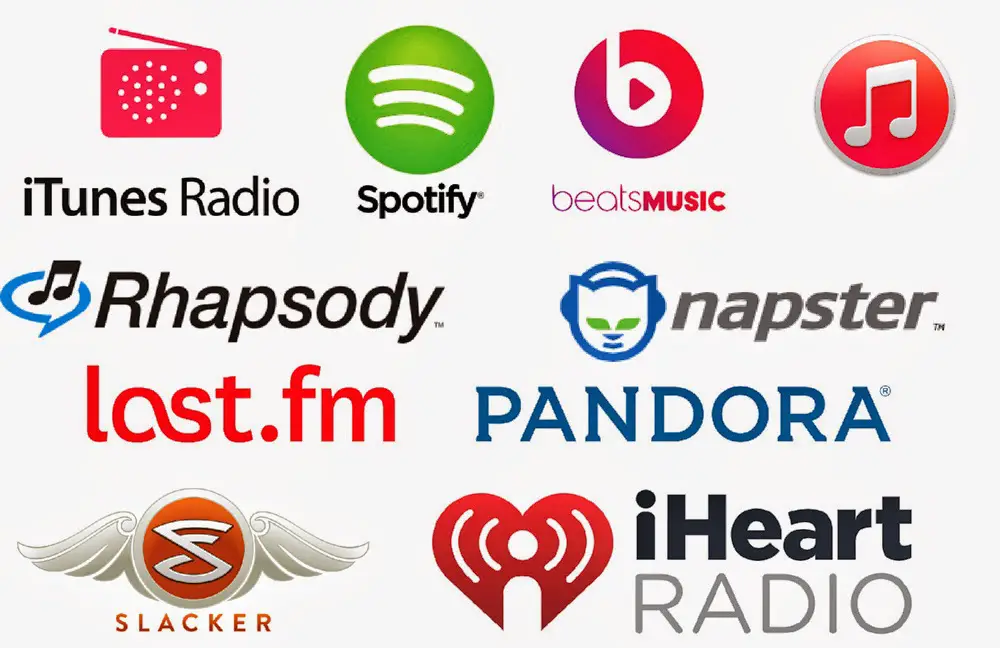The Financial Times is reporting that streaming music sales have eclipsed CD sales. While that’s not necessarily a surprise, the fact that they are now closing in on digital download sales as the largest source of revenue in the music industry certainly is. Digital downloads have been the number one source of the music industry’s revenues for a decade but since 2012, revenue has started to decline.
The article goes on to say that US revenues from Spotify, Rhapsody, and streaming radio services such as SiriusXM hit $1.87 billion in 2014. That was a 29% increase over 2013 and comprised 27% of the music industry’s total revenue. In case you’re wondering, vinyl sales were up almost 50% but totaled only $315 million by comparison.
At first glance, you may think this is no big deal, but it’s important to understand that there are some implications for such a trend?
Artist Pay: Taylor Swift is the poster child for standing up to streaming media’s business model that gave some of her music away for free. Swift wrote an Op-Ed in the Wall Street Journal that details her perspective. The real issue was royalty fees. The unintended consequence of digital downloads was that artists no longer got the full value of album sales. Now with streaming, the royalties going to artists are even less. I spoke with a friend of mine who has been in the music writing and production business for over 30 years. He agrees with Swift. He lamented how the change in this business model is really hurting smaller artists.
Quality: Is this MP3 all over again? Streaming services have been notorious for the inferior compression quality of their music. Last year, Time Magazine put together a nice grid outlining the different quality of each service. I’ve occasionally used Pandora’s free service over the years and it leaves me scratching my head when I song I know very well comes on and it leaves me wondering if it’s even the same song. Spotify’s claim was higher fidelity and I have to applaud iTunes Radio for their streaming quality—which is quite good. Nevertheless, the point is that users are at the mercy of the streaming service for the quality of their music.
The Music Experience: Those with enough grey hairs will recall the days of making music an experience. You got an album, painstakingly examined the jacket, looked at the liner notes and then listened. The music was the focus. Listening was an activity. With streaming services taking hold, how much more does this further relegate music to a background activity? Where’s the ownership? Can I appreciate what an artist has done with postage-stamp sized artwork on a digital device? Streaming services make you treat music like radio.
The Future of Music: The artists of today are still generationally connected to LPs and CDs. They grew up as part of a full album, physical medium generation. I wonder how the artists of tomorrow will fare with making money and their ability to connect with fans. What are the disruptive implications when you don’t own things any more and it’s just a service, like electricity? Maybe nothing happens. Maybe you start to take it for granted and it’s not special anymore. Maybe it increases in popularity and exposure? Who knows. To a degree it’s silly to over-romanticize this and say that music is doomed. The point is simply that listening habits have changed over time due to the introduction of new technology and they are changing again.
Personally, I’m not a huge fan of streaming services. I like paying for my music. I like owning a library. I like determining my medium and resolution. I don’t mind being in the minority in that case.
Yet at the end of the day, it’s not the audiophile but rather the artists who come up short. They are the ones who come up on the losing end. So, no matter how much audiophiles opine about this or that. No matter how much we nitpick about sources, equipment, and resolution it all comes down to the music. It’s all about the artist. You know what? Taylor Swift is right.
If music becomes unsustainable to such a degree that we start losing artists, then that becomes a loss for generations. If streaming is indeed going to become the dominant platform for music then let’s all support a model that appropriately supports the artists. Here’s to music.











